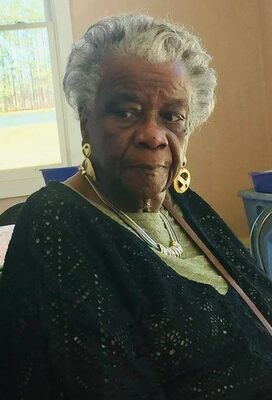Women’s History Month 2023 Celebrating Women Who Tell Our Stories
 Mary Ervin Moore
Mary Ervin Moore
Women’s History Month is a celebration of women’s contributions to history, culture and society and has been observed annually in the month of March in the United States since 1987.
The theme of Women’s History Month 2023 is “Celebrating Women Who Tell Our Stories,” as announced by the National Women’s History Alliance. The Community Times encourages recognition of women, past and present, who have been active in all forms of media and storytelling including print, radio, TV, stage, screen, blogs, podcasts, and more. The timely theme honors women in every community who have devoted their lives and talents to producing art, pursuing truth, and reflecting the human condition decade after decade.
From the earliest storytellers through pioneering journalists, our experiences have been captured by a wide variety of artists and teachers. These include authors, songwriters, scholars, playwrights, performers, and grandmothers throughout time. Women have long been instrumental in passing on our heritage in word and in print to communicate the lessons of those who came before us. Women’s stories, and the larger human story, expand our understanding and strengthen our connections with each other.
Each week during March 2023, The Community Times will strive to highlight a South Carolina storyteller, celebrating the often overlooked contributions they make to our history.
*Ms. Mary Ervin Moore, Horry County Educator*
More than five decades ago, Mary Moore became one of the first Black teachers to work at a mostly white school in Horry County,
By taking on her role at the start of integration, Moore paved the way for African Americans in the community. Now 94 years old, Moore and her family have lived in the same house in Conway for 68 years and are respected throughout the community.
Moore graduated from Morris College in 1950 and started teaching at segregated schools in 1957 in Conway. Then, in 1968, she moved to Conway Elementary and Middle School where she worked as a language arts teacher and guidance counselor.
“I didn’t have any fears about going into the situation, because I knew I could handle it,” she said. “I didn’t go there. Some of the teachers I found out later were afraid for me.”
In 1954, the U.S. Supreme Court ruled in Brown v. Board of Education that racially segregated schools violated the civil rights of Black students. However, Moore said schools in Horry County were not fully integrated until 1968.
“We had to ride out the storm of getting to know each other,” she said.
At Conway Elementary School, Moore said the principal, concerned for her safety, made sure the classes she taught were closest to the parking lot.
“They were saying this lady could be shot if she has to be wandering around and whatnot,” Moore said.
However, Moore said she and her husband gained respect in the community and that she was treated nicely by her white co-workers and the students and their parents. She was even given the nickname “Mother Superior.”
”I have stacks of letters from the students that they wrote me, and as well as the teachers,” Moore said. “I just couldn’t believe … I said this can’t be me they are talking about. They were so sweet.”
Moore made history again later when she became the first Black school counselor in Horry County.
For the next three decades, Moore and her husband dedicated their lives to providing fair education to all students despite the difference in pay from their white co-workers and a lack of resources in mostly Black schools.
“I remember my husband having to go to the old storage places, for the books, the microscopes and whatnot,” Moore said. “He went and ransacked, you know, without their knowledge and consent. He said ‘I’m going to see what I can find and use for the betterment of my children.'”
Moore said she is proud of the accomplishments they made with integration but remains disappointed that Black people across the U.S. are still fighting for equality.
“The kind of stuff upsets me,” she said. “It’s from the point of view of we have not yet been considered full citizens of these United States.”
Please support The Community Times by subscribing today!
%> "
